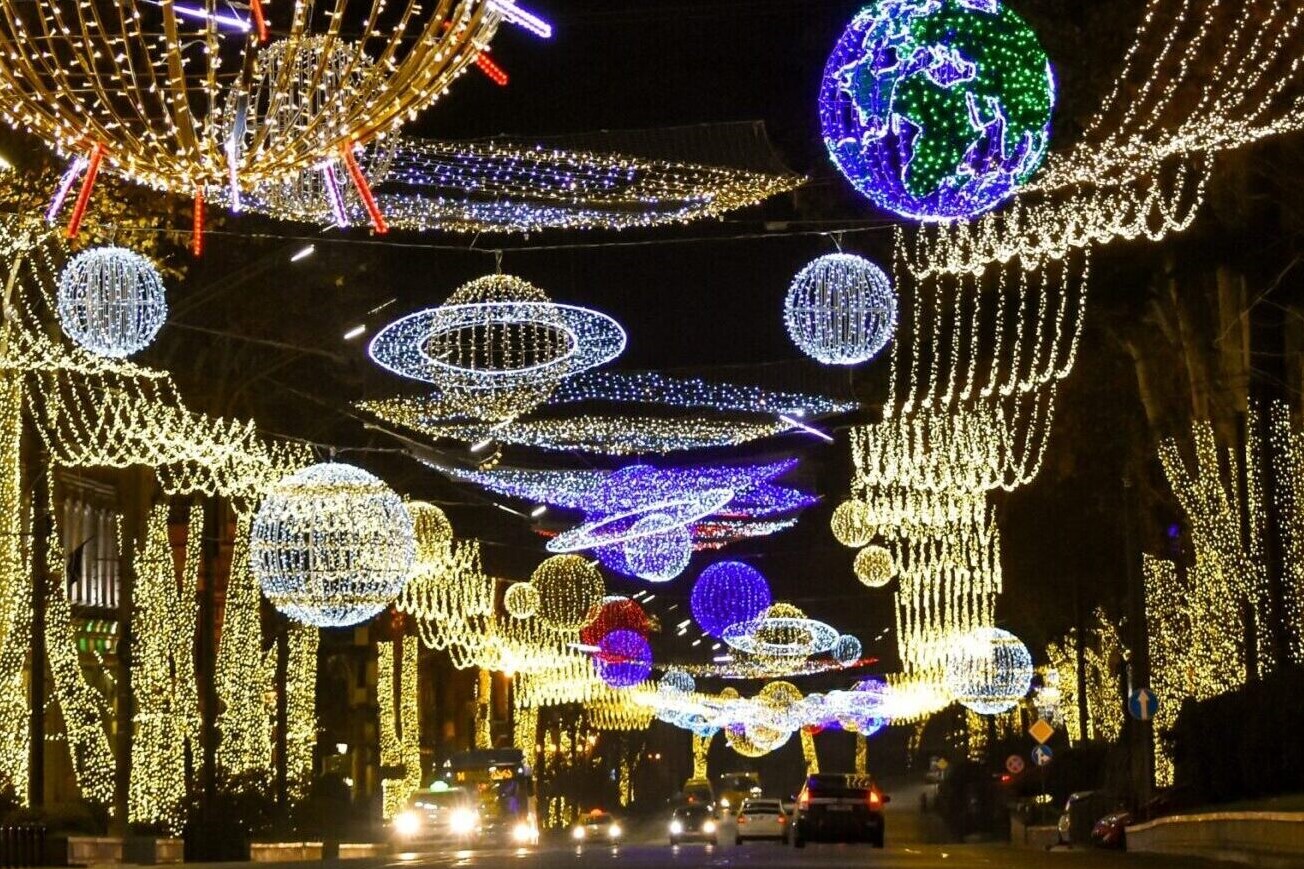If you admire unique Christmas trees and decorations, you will love Georgian Chichilaki. It is a charming, fluffy white tree shaved from dried hazelnut or walnut branches, making it much more environmentally friendly. To make Chichilaki, locals use branches pruned from the tree to keep it healthy. Trees are decorated with evergreen leaves and red berries, symbolizing a bountiful harvest and hope for a better future. The Georgian traditional Christmas tree has been inseparable from New Year and Christmas for centuries. The Chichilakis are then ceremoniously burned before the Georgian Orthodox Epiphany on January 19. This symbolic act marks the end of the previous year’s troubles and the beginning of a new, hopeful chapter.
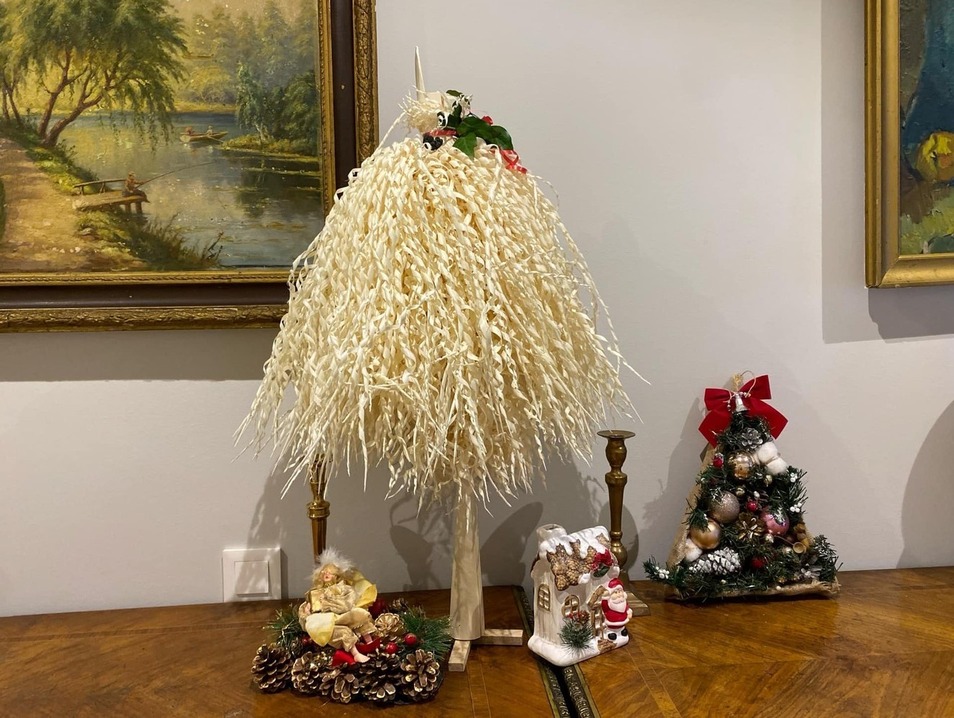
WINTER WONDERS AWAIT YOU IN GEORGIA!
What do Georgians eat for New Year?
New Year’s Eve in Georgia is all about food, friends, and family. Traditionally, Georgians gather with loved ones on New Year’s Eve for a joyous family feast around a big table. This is a time of togetherness when family bonds are strengthened over shared meals and laughter. Not surprisingly, the main traditions for Christmas and New Year are rooted in food. There is a must-have list for New Year’s menu.
- Satsivi -turkey or chicken in walnut sauce.
- Khachapuri- cheese-filled bread
- Pkhali- vegetables with walnut dressing
- Churchkhela – candle-shaped candy
- Gozinaki – walnuts with honey
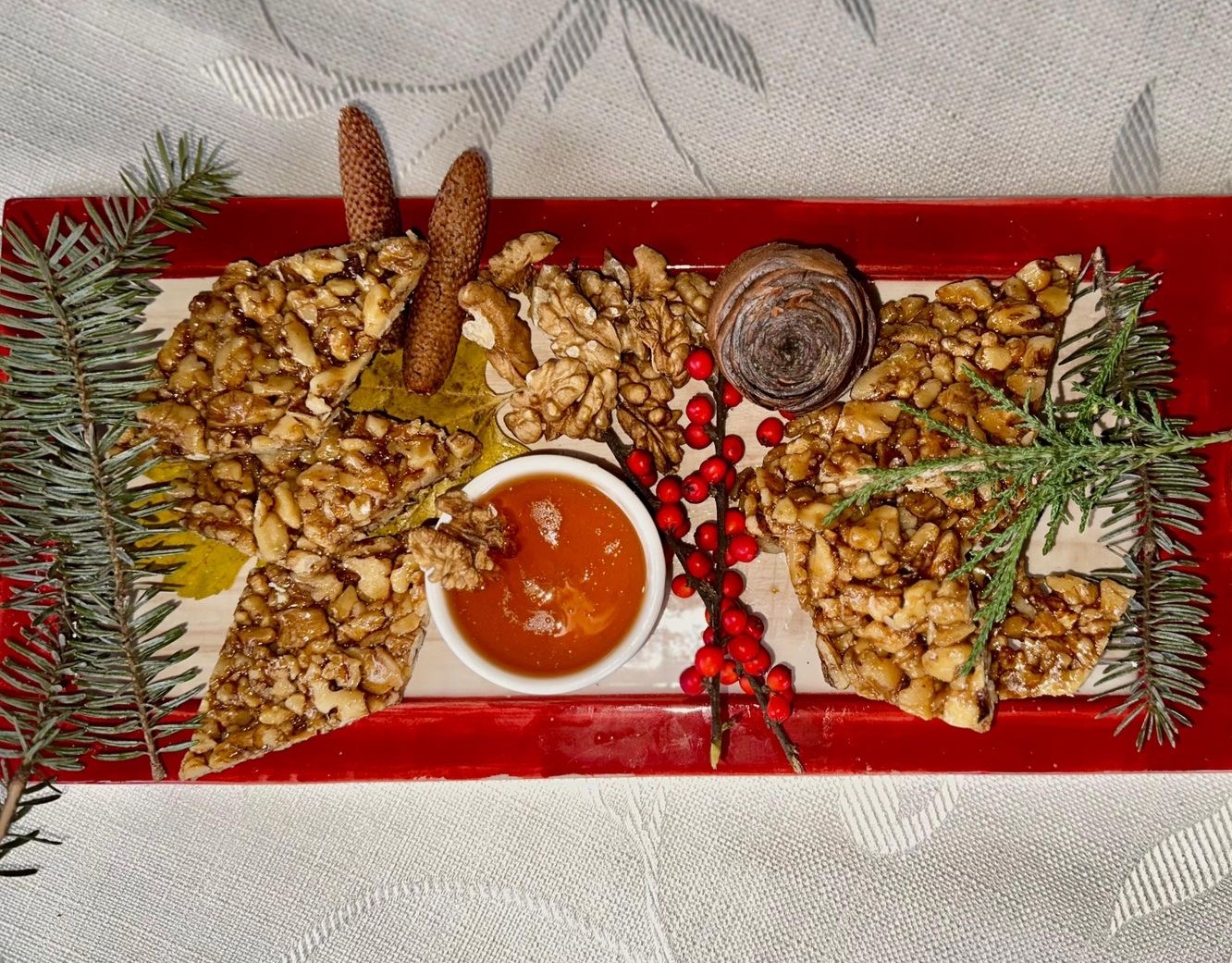
The best experience you can have while in Georgia is being invited into the homes of the locals. Regardless of whether your host is wealthy or not, you will be treated like royalty, as Georgians believe every guest is a gift from God. This is especially true on New Year’s Eve when every family prepares an abundance of food and serves Georgian wine. All you need to do is smile and learn a few key phrases: “Gaumarjos” for cheers and “Gilotsavt Akhal Tsels” for Happy New Year. If you’re fortunate enough to be hosted by locals, you’ll become part of a celebration filled with food, wine, song, and traditions that have been passed down through generations.
What Georgians do for good luck in the New -Year: The Mekvle tradition
We invite a special guest, Mekvle, a respected individual who is often the first visitor of the year. This person is welcomed by the host family and symbolizes hope for the year ahead.
The Mekvle arrives with sweets, representing the family’s wishes for abundance and joy. In return, the head of the family greets the Mekvle with treats, fostering connection and goodwill. This tradition emphasizes community, sharing, and celebration, bringing families closer together as they welcome a new year.
Partying until the dawn – It is New Year!
After enjoying a delightful feast with loved ones and warmly welcoming Mekvle, Georgians gather in the vibrant city squares to celebrate with their friends until dawn. Each town and city sparkles with festive decorations, while the night comes alive with dazzling fireworks and lively concerts, creating a magical atmosphere that fills the heart with joy.
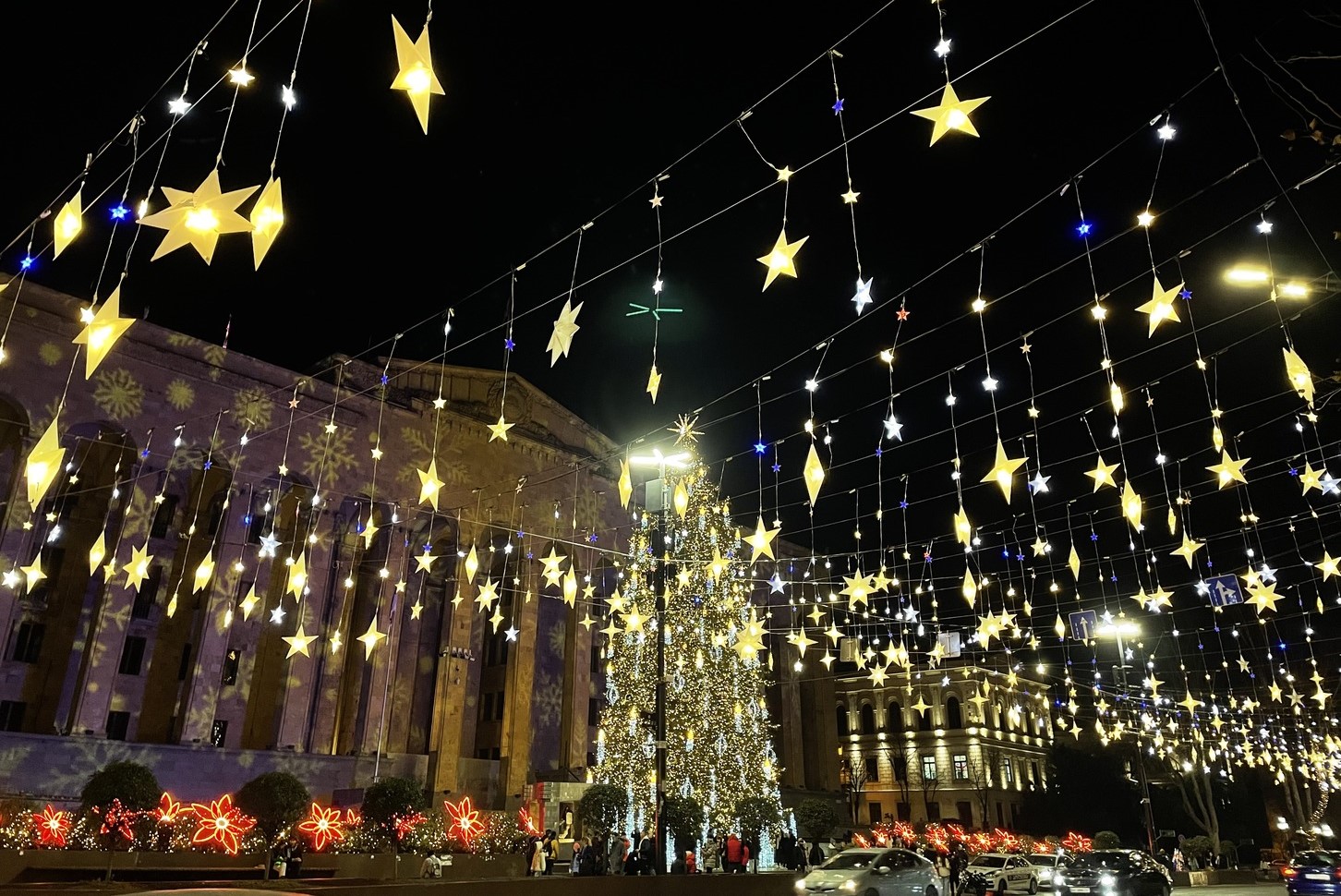
What is Bedoba Georgian Day of Destiny?
Bedoba is a day of destiny in Georgian culture. The level of luck you will experience throughout the year depends on how you spend January 2. Traditionally, Georgians celebrate this day by eating sweets, drinking the finest wine, and being surrounded by their loved ones. The emphasis is on fostering an atmosphere of love and joy, which is thought to bring happiness for the entire year.
You can celebrate Christmas twice
If it’s still January and you’re already missing the Christmas spirit, consider visiting Georgia. While many people take down their holiday decorations, Tbilisi is full of festive cheer. Georgia joyfully celebrates Orthodox Christmas on January 7, following the Julian calendar. Christmas is the time to invite Jesus into our homes, so Georgians light a candle and place it in the window, welcoming our Savior to be born within our families. This celebration helps keep the holiday spirit alive longer, with charming decorations and lively markets.
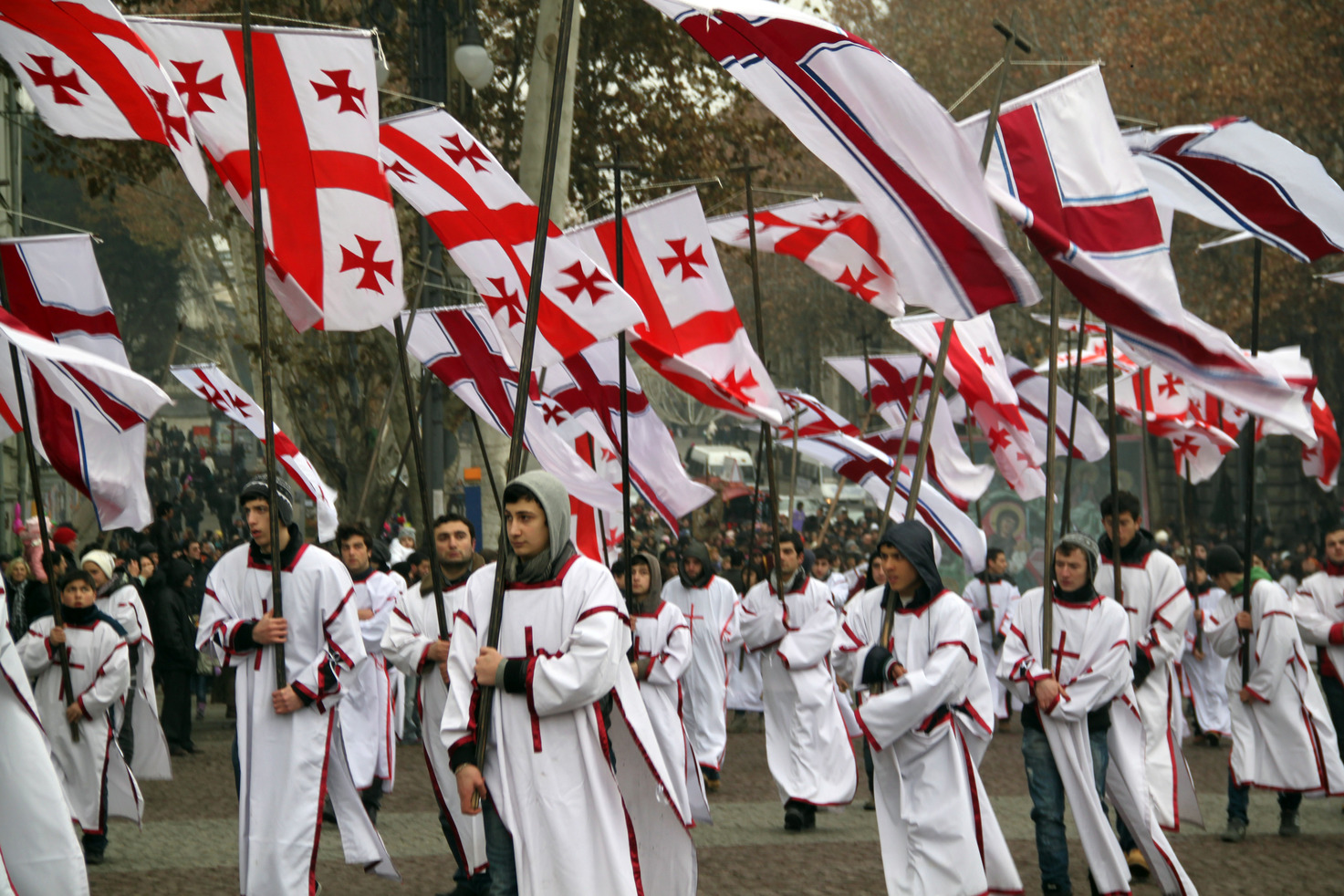
Christmas morning begins with Alilo, an ancient Georgian tradition dedicated to the Christmas holidays that dates back to the 5th and 6th centuries. On Christmas Day (January 7), people gather to share joy and congratulate one another on the Nativity of the Savior.
Join in the fun of a joyful procession where participants in white tunics with red crosses sing cheerful Christmas carols and gather gifts for those in need! The gifts are beautifully loaded onto carts pulled by bulls, honoring ancient traditions. You can march alongside adorable children dressed as angels or relax and soak in the festive Christmas spirit. It’s a heartwarming experience that truly captures the magic of the season!
Old or New: It is the new year again
Everything beautiful has its end, and even party-loving Georgians need a break. However, this break doesn’t come until the old New Year is appropriately celebrated. Yes, it’s true—Georgians celebrate New Year twice! January 14 is similar to December 31, featuring family gatherings, Georgian feasts, fireworks, and sparkling wine. Most importantly, it captures the same spirit and atmosphere. So, if you’re ready for a fortnight of festivities, consider visiting Georgia!
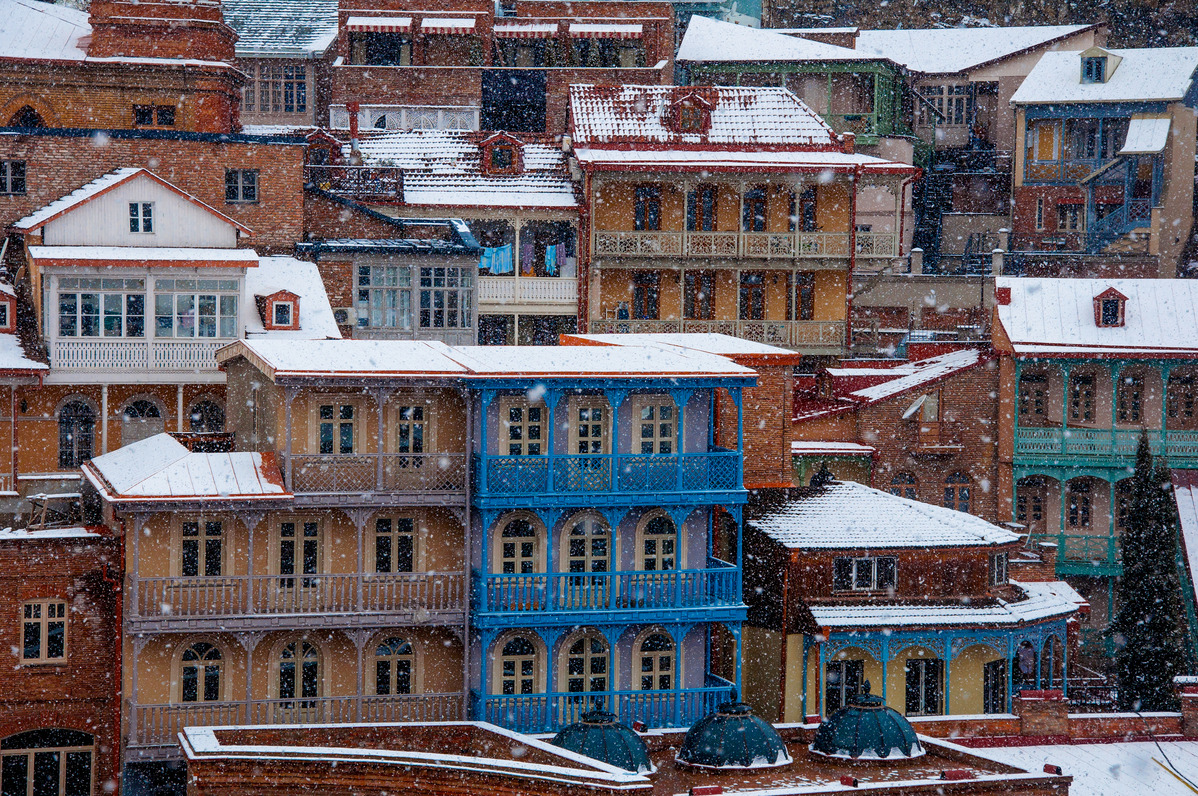
Does it snow in Georgia, Tbilisi?
Yes! Snowfall in Georgia and Tbilisi can be a magical sight during winter, although snow in Tbilisi is not guaranteed every year. If you’re lucky, you might experience snow during the New Year in Tbilisi, adding a festive charm to the city. However, outside of Tbilisi, Georgia’s mountain regions reliably receive heavy snowfall, making them perfect for a winter wonderland escape. From snowy peaks to lively celebrations, Georgia in December and winter is full of beauty and festive vibes.
Joyful New Year in Georgia
New Year is the biggest holiday in Georgia. Big or small are especially preparing for this day and any Georgian family is looking forward to this holiday with great hopes, wishes and goals. Beautifuly decorated Tbilisi, traditional Georgian dishes, unique wine, special hospitality and kindness of Georgian people will make the New Year unforgettable.
